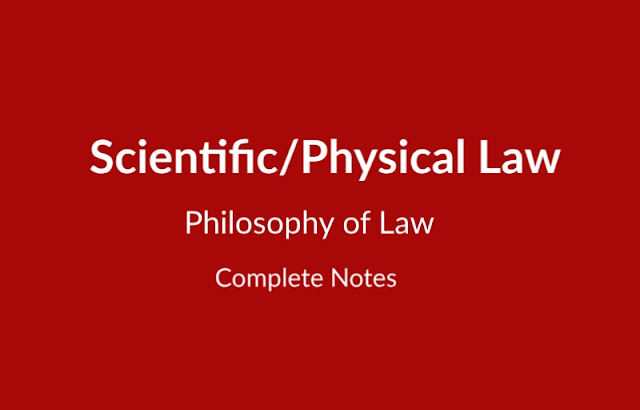Physical or Scientific Law Philosophy of law notes
Write a detailed note on physical or scientific law? (2018-A)
What is physical/Scientific law and its characteristics?
1.Introduction
Physical laws are also called natural laws or laws of nature. There is uniformity & regularity in those laws. They are not creations of men & can't be changed by them. Human laws change from time to time & country to country but physical laws are invariable & immutable for ever. Physical or scientific laws are expressions of the uniformity of nature, or uniformity in the conduct of living beings of lifeless things
2.Definition
General Definition:
Statements based on repeated experimental observation that describe some aspects of world.
According to Salmond:
Physical law or the laws of science are expressions of uniformities of nature --- general principles expressing the regularity and harmony observable in the activities and operations of universe.
3.Examples of Physical or Scientific law
Newton's Law of Gravity, Law of conservation of mass, Law of conservation of energy, Law of conservation of momentum and law of tides.
4.Second name of Scientific law
Thus, the very uniformity in conduct of animate or inanimate objects is known by its second name “physical law” governing that object.
5.Main requirements for scientific Law
It cannot be broken
Testable: It can be testable again and again.
Simple: A theory should be simple.
Uniformity and regularity.
Cannot be change by human.
6.Characteristics:
1.they summarize results of experiments or observations within certain range of application
2. It's used to predict outcomes of an experiment
3. There is uniformity in these laws.
4. They are not certain of man and can't be changed by them.
5. They are invariable






Leave a Comment